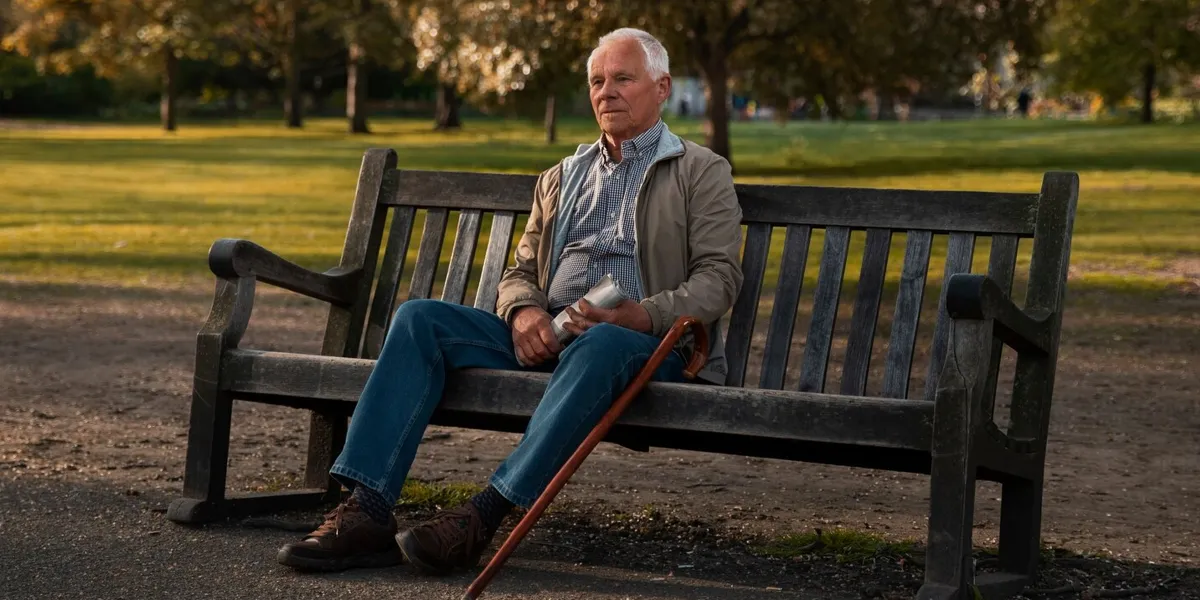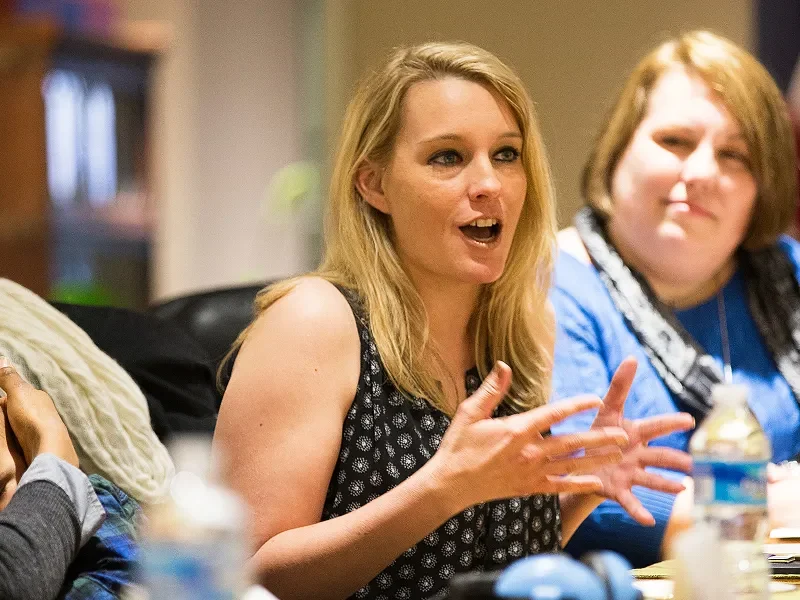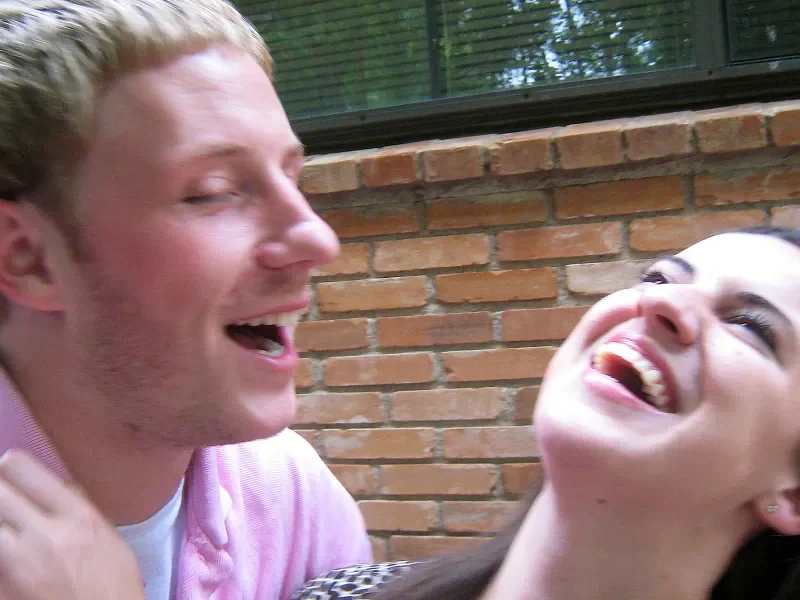40 years ago, my husband left to buy milk and disappeared. Just as I had begun to lose hope, a mysterious letter arrived, urging me to go to the railway station. There he was, aged and trembling, with a story so impossible that it would change everything.
The morning sunlight poured through the windows, spilling golden warmth onto the kitchen table. I stood by the sink, humming to myself as Michael wrapped his arms around my waist.
“Good morning, beautiful,” he said, pressing a kiss to my temple.
“Good morning, charmer,” I replied, swatting him playfully with the dish towel.
Benjamin, our four-year-old, was busy building a tower with his blocks on the living room rug. “Dad! Look at this!” he shouted, his hazel eyes, the same as mine, lighting up with pride.
Life was simple, and it was good.
“Do we need anything from the store?” Michael asked as he handed Dorothy to me.
“Just milk,” I said. “But I can go later.”
“Nonsense. I’ll grab it now,” he replied, grabbing his jacket.
That was the last time I saw him.
At first, I wasn’t worried. Maybe he’d run into a neighbor or decided to pick up a few extras. But as an hour turned into two, and two turned into evening, unease crept in.
I called the store, my voice trembling. “Hi, has anyone seen my husband?”
The clerk’s response hit me like a brick. “No, ma’am. Haven’t seen him today.”
I called neighbors, friends, even his boss. No one had seen him.
By nightfall, I was pacing the living room, my heart racing. Benjamin tugged on my sleeve. “Where’s Dad?”
“I… I don’t know, sweetheart,” I said, kneeling to his level.
“Did he get lost?” Benjamin asked, his voice small.
“No, baby. Daddy knows his way,” I said, trying to sound confident. But inside, panic clawed at my chest.
The police came the next morning. They asked questions, took notes, and promised to “look into it.”
“Was your husband under any stress?” one officer asked.
“No!” I snapped, then softened. “We were happy. He loved us.”
Days turned into weeks, and still, nothing.
I plastered missing posters on every lamppost and storefront. “Have you seen this man?” I asked strangers on the street.
Benjamin clung to my side, his wide eyes scanning every crowd. Dorothy, too young to understand, babbled, “Da-da?”
Months passed. The whispers started.
“Maybe he ran off,” a neighbor murmured.
“Maybe she drove him away,” another said.
I clenched my fists. Michael wouldn’t leave us. He wouldn’t leave me. Late at night, I would sit by the window, staring into the darkness, waiting.
40 years. 40 years of waiting, of hoping, of crying myself to sleep.
I had grown old in his absence. My hair had turned gray, my children had grown, and my life had passed me by.
One crisp autumn morning, I found an envelope in my mailbox. Plain white, no return address.
I opened it with trembling hands. Inside was a single line, written in bold, unfamiliar handwriting:
“Hurry to the railway station.”
My heart pounded. I read the words again, my breath catching.
“Mom, what’s that?” Dorothy—now a grown woman—asked as she walked into the room.
“I don’t know,” I said, clutching the note.
“Is it… from him?” she asked hesitantly.
“I don’t know,” I repeated, my voice barely above a whisper.
I sat at the kitchen table for what felt like hours, the note in front of me.
“What if it’s a trick?” I thought. “What if it’s nothing?”
But what if it wasn’t?
Something about the handwriting tugged at my memory. It wasn’t Michael’s, but it felt familiar, like the echo of a voice I hadn’t heard in decades.
I grabbed my coat, my heart thudding in my chest.
I didn’t know what I would find. But for the first time in 40 years, I felt alive again.
The railway station was alive with noise and motion. The clatter of suitcases on the tile floor, the low hum of announcements over the intercom, and the distant whistle of an approaching train filled the air. People hurried past, their faces a blur of strangers. I stood frozen at the entrance, clutching the note in my trembling hands.
My eyes darted from one face to the next, searching, hoping. And then I saw him.
He sat on a bench near the far end of the platform, his hands clasped tightly in his lap. His hair was white now, his back slightly hunched, but it was him. It was Michael.
I gasped, my legs carrying me forward before my mind could catch up. “Michael!” I cried out, my voice breaking.
His head snapped up, his eyes locking onto mine. Tears welled in his eyes as he rose unsteadily to his feet.
“Clara…” he whispered, his voice trembling.
I reached him in seconds, my arms outstretched, ready to embrace him. But he lifted a hand, stopping me in my tracks.
“Wait,” he said, his voice thick with emotion. “You have no idea what happened to me.”
I froze, confusion and relief swirling inside me. “Michael, where have you been? I searched for you. I never stopped looking.”
He sighed heavily, running a hand through his hair. “It’s a long story, Clara. But you need to know the truth.”
Michael sat back down, gesturing for me to join him. I perched on the edge of the bench, my heart pounding.
“I was taken, Clara,” he began, his voice barely above a whisper. “That day, forty years ago, men grabbed me off the street and forced me into a car. They said I owed money—a gambling debt I couldn’t repay. I thought I could get away, but I couldn’t. They knew everything about me. About you. About the kids.”
I stared at him, my chest tightening. “They threatened us?”
He nodded, his jaw clenching. “They said if I tried to escape or contact you, they’d kill you. I didn’t know what else to do. They forced me into their operation—smuggling, manual labor, anything they wanted. I was a prisoner, Clara.”
Tears streamed down my face. “Why didn’t you run? Why didn’t you fight back?”
“I tried,” he said, his voice breaking. “God knows I tried. But their reach was everywhere. Even if I escaped, they would’ve come for you and the kids. I couldn’t risk it.”
Michael’s hands trembled as he continued. “After a few years, there was a raid. The FBI stormed one of their warehouses. I thought it was my chance to get out, but they caught me too. I thought I’d be arrested, but instead, they offered me a deal.”
“A deal?” I asked, my voice barely above a whisper.
“They wanted me to work for them,” he said. “Undercover. My knowledge of the cartel’s operations was too valuable. They said it was the only way to protect you. I didn’t want to do it, Clara, but I didn’t have a choice. I couldn’t let those monsters rebuild and come after you.”
I sat in stunned silence, the weight of his words sinking in.
“It took decades,” he said, his voice steadier now. “The cartel was massive, and dismantling it piece by piece wasn’t easy. But last week, they finally arrested the last of the leadership. It’s over, Clara. They’re gone. And I’m free.”
Before I could respond, a man in a dark coat approached us. He was tall, with sharp eyes and a professional air. He pulled out a badge, flashing it briefly.
“Clara, I’m Agent Carter,” he said. “Your husband’s story is true. His work was instrumental in bringing down one of the largest criminal organizations in the country.”
I stared at the agent, then at Michael. “So… it’s over? He’s safe?”
Carter nodded. “The cartel has been dismantled. We owe him more than I can say. Without his bravery, this would’ve taken decades longer.”
A mix of relief and anger surged through me. I turned to Michael, tears streaming down my face. “You should’ve come home sooner.”
“I couldn’t,” he whispered, his voice cracking. “I couldn’t risk you.”
Carter stepped back, giving us a moment. Michael reached for my hand, his touch familiar yet changed. “Clara, I never stopped loving you. Not for one moment.”
I squeezed his hand, my heart aching with both joy and sorrow. “You’re home now, Michael. That’s all that matters.”
The noise of the station faded as we sat together, holding onto each other like we never would let go again.
Michael and I walked hand in hand down the quiet street that evening. The air was cool, the sky streaked with the colors of dusk.
For the first time in 40 years, I felt a sense of peace.
I looked at Michael, the man I had loved for so long, through every doubt and every tear. “We’ll figure it out,” I said.
He squeezed my hand. “Together.”
The past was behind us, and the future, though uncertain, was ours to create.


